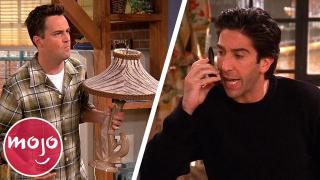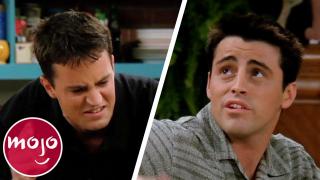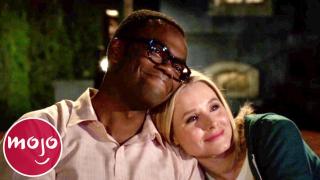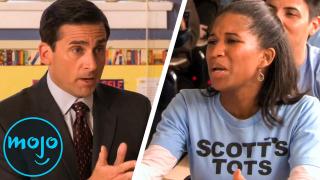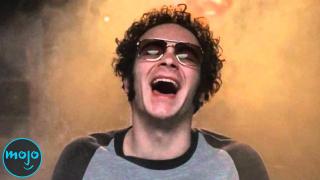Top 10 Sitcom Moments That Changed the Course of the Show
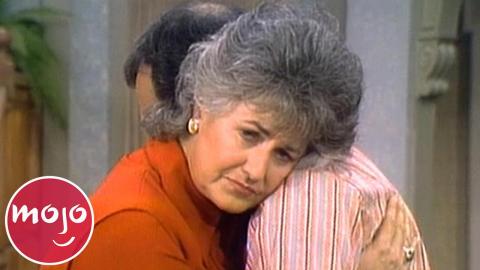
#10: Enter Urkel “Family Matters” (1989-98)
When this spinoff of the show “Perfect Strangers” was pitched, it was originally supposed to center on Harriette Winslow, her Chicago PD officer husband and their children. A pesky neighbor was barely an afterthought. The epitome of a TV nerd, Steve Urkel was introduced halfway through the first season as Laura Winslow’s blind date. He was expected to be a one-and-done character. Instead, Urkel and his performer, Jaleel White, became the breakout stars. By the second season, White had been upgraded to series regular, and much of the show began revolving around Urkel’s antics. This would lead to some conflict between White and his castmates.
#9: Maude’s Dilemma “Maude” (1972-78)
When Norman Lear created this “All in the Family” spinoff, it didn’t have Archie Bunker’s virulent, if hilariously wrongheaded, bigotry. What it did have was Maude, a New York liberal who gave the word outspoken a whole new meaning. But this season one episode which found her deciding what to do about a late in life pregnancy had enough social relevance and human drama to put the Bunkers to shame. In November 1972, Roe v. Wade was months away from being decided by the Supreme Court, but abortion was still a taboo subject on television. The episode brought it into people’s living rooms, and made “Maude” a force to reckon with in the age of politically-charged TV comedy.
#8: “We were on a Break!” “Friends” (1994-2004)
Top 20 Unscripted Friends Moments That Were Kept in the Show
It took a while for Ross and Rachel to kiss. Then it took much longer for them to actually commit to each other. A huge part of the reason things delayed so long was this infamous episode. Ross and Rachel get into an argument about her working on their anniversary. This disagreement leaves their relationship on shaky ground, leading Rachel to suggest they take a break. Ross goes out for drinks and ends up spending the night with a woman who works at a copy center. This throws a wrench in his relationship with Rachel that takes years to fully heal, and ultimately makes for one of the show’s greatest running jokes.
#7: Dan Harmon’s Exit “Community” (2009-15)
Top 10 Unscripted Sitcom Moments That Were Kept in the Show
While this didn’t technically happen on screen, original writer, creator, and showrunner Dan Harmon’s firing was deeply felt once “Community” returned for its fourth season. Despite not being a ratings bonanza, the series had a devoted fan base who immediately sensed the drop in quality. Any list of the show’s worst episodes is full of season 4 entries. Under new leadership, the season saw numerous character-betraying storylines, empty retreads of past storylines, and even a reviled episode featuring puppets. What soon became apparent was that Harmon’s voice was an essential part of the show. Things got so dire that he was rehired for the fifth season to get the runaway train back on track.
#6: “This is the Bad Place…” “The Good Place” (2016-20)
Top 10 Sweetest The Good Place Moments
When Eleanor Shellstrop finally put together that the show’s original premise, that she had been let into a utopian afterlife by mistake, was all wrong, it changed everything. What we’d come to know as the Good Place was really the Bad Place, and Michael, the presumed angel, was actually a demon running a twisted experiment. The unraveling of the real story gave way to a sitcom that wasn’t about a misanthrope trying to con her way into staying in Heaven. It was actually a much deeper and philosophical story about how she could still make amends for her bad behavior and change for the better.
#5: Winning the Lottery “Roseanne” (1988-2018)
It all started out very normal. For eight seasons, the Conners were just a working class midwestern family trying to make ends meet, and usually, they did so by the skin of their teeth. But that tone drastically shifted in the final season. The family wins the lottery, and their lives completely change. Some of the storylines are downright surreal. One episode even has Roseanne Conner fight train-hijacking terrorists with the help of a Steven Seagal spirit guide. The show made some amends for this betrayal in its original finale, which reveals it was all part of Roseanne’s novel. However, it was still a dizzying experience to watch it in real time.
#4: James Sr.’s Death “Good Times” (1974-79)
Another Top 10 James Corden Carpool Karaoke Performances
This Norman Lear sitcom portrayed an African American family living in a Chicago housing project, showcasing their resilience despite social and economic hardship. However, its increasing focus on the antics of eldest son J.J. Evans made lead actors James Amos and Esther Rolle eager for a change. They eventually got their wish. Amos was fired ahead of the fourth season, and his character was killed in an off-screen car accident, marking one of TV’s most devastating and unfair deaths. Rolle ultimately quit the show at the end of the season. The departure of these key actors dealt a blow from which “Good Times” never fully recovered. Despite lasting two more seasons, the family unit that made the show special was forever altered.
#3: Michael Scott Leaves “The Office” (2005-13)
Top 10 Worst Things Michael Scott Has Done
The regional manager of Dunder Mifflin’s Scranton Branch started the series in a very different place than he ultimately left it. Michael Scott was introduced as a politically incorrect buffoon, a nuisance, and an enemy to productivity. Although those traits still remained by the seventh season, both his staff and the viewers had grown to love him that way. After Steve Carell departed and his character relocated to Colorado, it left a big hole in the show’s center. Ed Helms’ Andy Bernard was a poor substitute for Scott, as was James Spader’s Robert California. Critics were not thrilled by the eighth season, and some even flat-out suggested the show should have ended with Scott’s departure. Unsurprisingly, “The Office” ended the next season.
#2: Ellen Reveals She’s Gay “Ellen” (1994-98)
Another Top 10 Moments on the Ellen DeGeneres Show
The now classic, and infamous, “Puppy Episode” won widespread acclaim and became a lightning rod of controversy when Ellen DeGeneres’ character, Ellen Morgan, revealed her sexual orientation. This was hot off the heels DeGeneres doing the same in real real-life. Ellen, along with guest stars Laura Dern and Oprah Winfrey, received a great deal of backlash for the episode. In response, ABC began airing a parental advisory before episodes of the otherwise uncontroversial sitcom. Though it generated a lot of publicity, the show’s openness with its main character's sexuality and perceived turn to a more serious tone ultimately led to its cancellation the next season. Before we unveil our top pick, here are a few honorable mentions. Charlie Sheen’s Firing, “Two and a Half Men” (2003-15) Sheen’s Exit & Ashton Kutcher’s Entrance Totally Switched Up the Show’s Dynamics Med School, “Scrubs” (2001-10) A Surprise Series Renewal Had the Original Cast Becoming Mentors to a New Crop of Students Jodi’s Substance Use Disorder Becomes Fatal, “Mom” (2013-21) The Very Real Life & Death Stakes of Sobriety Hits Home in This Season 3 Episode Lucy’s Pregnancy, “I Love Lucy” (1951-57) The Show Used Its Humor to Shatter a TV Taboo About Pregnancy & Ratings Skyrocketed
#1: Lt. Col. Henry Blake Is Shot Down “M*A*S*H” (1972-83)
Top 10 That 70s Show Moments That Aged Badly
It was sometimes easy to forget these doctors were in a warzone. The jokes were quick, the characters were eccentric, and if that didn’t suffice, there was always the laugh track to remind you it was, indeed, a sitcom. When actor McLean Stevenson left “M*A*S*H” in its third season, his character Lieutenant Colonel Blake was written out. Rather than let him go home, the show walloped us with the news that his helicopter was shot down. The episode closes with the cast’s stunned silence. Blake’s death signaled a shift in tone. The original writers would leave at the end of the next season, and “M*A*S*H” would begin to shift toward more realistic stories of wartime drama. What’s the most show-altering sitcom moment you remember? Sound off in the comments!


